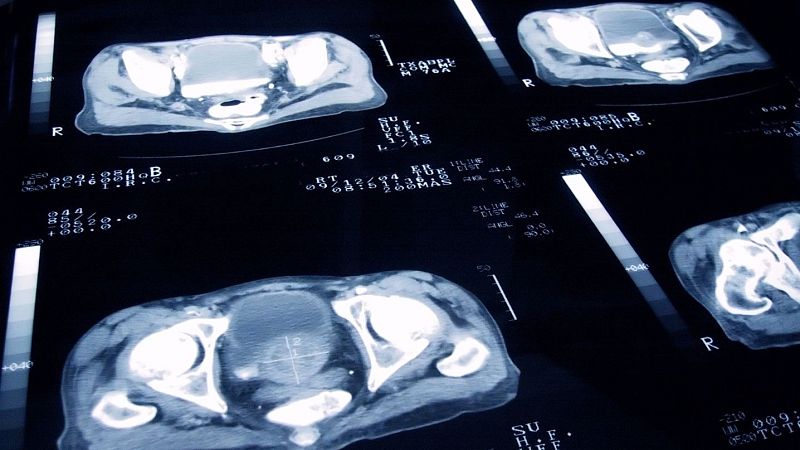
A new artificial intelligence (AI) tool could boost health outcomes for some men with prostate cancer by identifying whether they would benefit from a promising treatment.
The drug abiraterone works by blocking testosterone production throughout the body, including in the tumour.
It’s been shown to slash the risk of death by nearly half for about one in four men with prostate cancer – but it can be costly and have side effects, making health authorities wary of prescribing it too readily.
That means getting abiraterone to the right patients at the right time could help improve their prognosis, while also avoiding over-treating patients who might not benefit from the drug, according to the study led by UK institutions.
“This research shows that we can pick out the people who will respond best to abiraterone, and those who will do well from standard treatment alone – hormone therapy and radiotherapy,” Nick James, the study’s co-lead and a professor of prostate and bladder cancer research at the UK’s Institute of Cancer Research, said in a statement.
The findings were presented this week at the American Society of Clinical Oncology’s annual meeting in Chicago.
Studying tumour images with AI
Scientists used AI to study images of tumour samples and identify biomarkers that could have otherwise gone undetected, and then applied the test to biopsy images from more than 1,000 men who had participated in another clinical trial on prostate cancer treatments.
Among patients with biomarker-positive tumours, abiraterone slashed the risk of death from 17 per cent to 9 per cent within five years.
For those with biomarker-negative tumours, abiraterone did not significantly reduce their mortality risks – meaning these patients should receive standard treatment, the study concluded.
Researchers noted that abiraterone can cause side effects such as high blood pressure, liver problems, and diabetes, meaning the AI tool could help direct prostate cancer patients to the best treatment for them.
“This study shows, in a very large cohort of patients, that novel algorithms can be used to extract information from routinely available pathology slides to tailor these treatments to specific patients and minimise over treatment whilst maximising the chance of cure,” Gert Attard, the study’s co-lead and a professor of medical oncology at the University College London Cancer Institute, said in a statement.
In the United Kingdom, abiraterone has been approved in Scotland and Wales to treat newly-diagnosed, high-risk prostate cancer that has not yet spread, but in England, it is only available through the National Health Service (NHS) for men whose cancer has metastasised.
The researchers called on the NHS to reassess this decision, saying 8,400 men per year could potentially benefit from the drug.
“Access to this life-extending drug is currently a postcode lottery – with those living in Scotland and Wales able to receive the treatment for free,” James said.
Prostate cancer is one of the most common forms of cancer for men, with nearly 336,000 new cases diagnosed every year in the European Union.







